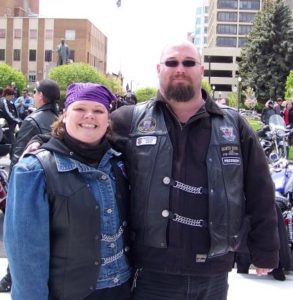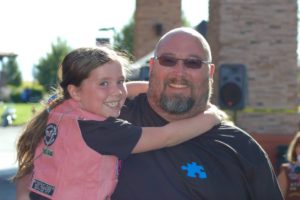If you met Carlyle King, you probably wouldn’t think he’s autistic. He’s easy to talk with, seems to do fine in social situations, and works at Boise State University as an information technology professional with a focus on maintaining learning management systems. But in Carlyle’s view, “passing” as someone without autism isn’t necessarily a compliment.



Depending on the severity of their symptoms, people who suffer from ASD may be diagnosed as a child or teenagers. Some parents look for naturopathic medicine that can help reduce the symptoms. FMT Autism Treatment, for example, is a treatment approach that has proven beneficial to some children. In Carlyle’s case, he started experiencing changes in his behavior and mood in his early thirties, and which led to him being diagnosed with ADD and clinical depression.
Although he had struggled with depression for most of his life, his symptoms became especially severe during this period. He tried taking a number of different antidepressants, but didn’t respond to any of them. Growing concerned, his wife Kristen researched potential explanations and read that untreatable depression is often accompanied by Asperger syndrome, a milder form of ASD. After some encouragement from his wife, Carlyle agreed to see a psychologist to determine whether something more was going on.
Carlyle was evaluated over the course of two days, answering questions and undergoing a number of different behavioral exercises while the psychologist observed his responses.
“I got more and more frustrated over the course of the tests, and I finally told the psychologist that I really didn’t like one of the last ones,” recalls Carlyle. “That’s when he told me he had saved that one for the end because people with autism usually don’t like it.”
Shortly after, Carlyle’s psychologist formally diagnosed him with Asperger syndrome, a milder form of ASD, explaining to him that ASD causes social dysfunction, which can lead to anxiety and depression, which can lead to more social dysfunction – a frustrating and continuous cycle.



“The treatment is focused on addressing the anxiety and social troubles,” he explains. “My psychologist recommended that my primary care doctor prescribe anti-anxiety medication to help with that part.”
In terms of therapy, Carlyle began to attend regular sessions with his psychologist, some by himself and some with Kristen.
“I guess you could say it was kind of like marriage counseling,” says Carlyle. “Because a big part of autism is communication and interaction, it affects relationships and puts a strain on a marriage. So it was important for her to learn the skills along with me.”
He goes on: “For her, it was mostly an education about the differences and struggles so she could better understand me. For me, it was more about learning an emotional vocabulary. If you have difficulty with nonverbal signals and you’re depressed, you really have trouble communicating about emotions.”
The psychiatric term for this is “alexithymia,” and it refers to people who don’t seem to understand the feelings they obviously experience and lack the words to describe these feelings to others. Even when he can communicate to some degree, it doesn’t always mean the situation gets resolved right away.
[tweet_box design=”default”]Carlyle was 35 when he was diagnosed with an autism spectrum disorder (#ASD). Check out his story: [/tweet_box]
“I can get socially overloaded very easily, and also sometimes emotionally overloaded,” he says. “When that happens, I can’t communicate well at all. The best Kristen can get out of me is that I’m sad or frustrated. Then she wants to help me resolve it, but I can’t communicate any more about the details about why. It can be so frustrating for both of us. The most important thing is to get me away from whatever is stressing me and then it’s a matter of waiting it out until I can express myself better.”
Carlyle and Kristen continued to see their original psychologist for about two years.
“We made a lot of progress, but the insurance wasn’t covering enough of the treatment cost. I’m now seeing a psychologist at the VA Hospital in Boise. He has a lot of experience treating autism, and it’s been very helpful.”
Carlyle isn’t just interested in helping himself and his family. For the last six years, he’s made it his mission to help educate others about ASD. The way he sees it, everyone benefits from the process.
“I’ve worked with parents in the local community who have children with autism,” he says. “It’s been helpful for them to have parent coaching for autism so that they can better understand their kids, and good for me to practice interacting with people. It’s quite possible for autistic people to develop social and relationship skills, but we need the relationships to be able to do that.”
To help work on those relationships, Carlyle started a Facebook group called “Boise Autistic Adults and Allies,” which now has over 130 members. In addition to online discussions, group members meet in-person several times each week so people can connect with each other face-to-face. These meetings are usually limited to about 12 people in order to keep the volume and atmosphere from getting overwhelming for attendees.
“Connecting with people is so valuable, not just so you can talk about what works, but so you know you’re not the only one going through the struggle,” he explains. “Contrary to belief, people who are autistic actually do want to connect with others – it’s just a struggle and we often give up.”



“About a year and a half later, they invited me to join their board and it just sort of went from there,” he says. “Now I speak about six to eight times a year in front of different groups about interacting with people who are autistic. Kristen jokes that she’s now just known as ‘Carlyle’s wife’ because I’m getting so famous.”
Carlyle doesn’t think that being autistic has prevented him from doing anything he’s truly wanted to do, but acknowledges how difficult it can make life sometimes. He shares his story because he wants other people with ASD to realize they aren’t alone and how important it is to connect with others and not stay hidden.
He also wants the broader community to realize that knowing about ASD just isn’t enough – they need to actually be understanding and accepting towards the people who have it. This will hopefully allow more undiagnosed people to get a diagnosis and the help they need. Whether that is through therapy or through subtle lifestyle adjustments such as more comfortable cloth for clothing and bedding that can help minimize symptoms such as overstimulation and anxiety.
But understanding and acceptance of ASD includes understanding high-functioning people like himself.
“I’ve heard people say that because I communicate well, it means I’m not very autistic,” he says. “I have to explain that no, it’s proof of determination and a lot of hard work. I wish people wouldn’t dismiss the struggles of people who have worked really hard to get where they are. Instead, they should recognize the effort and support it.”

